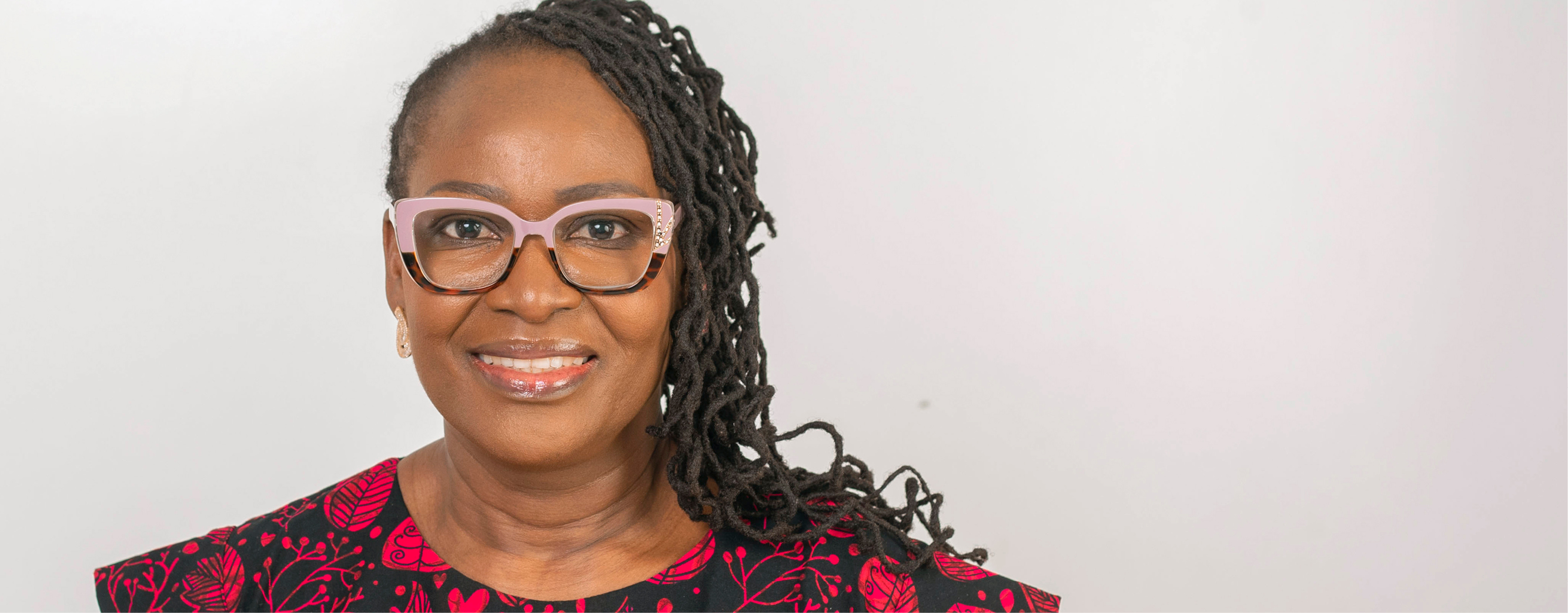Admitted students, confirm your enrollment
Prospective students, learn more

“I said to myself, we can do everything in the clinic and still keep getting this number of patients. But, if I can go into population research, I can learn about the policies and things we can do to promote this vaccine.”
Adaiah Soibi-Harry was working as an OB-GYN at a hospital in Nigeria when she noticed a disturbing pattern. More and more women were coming in and needing treatment for cervical cancer. “The question hit me one day in the clinic: Why are we still treating women in Nigeria with cervical cancer when there is a vaccine? This cancer is preventable. It is so expensive to take care of cancer. We are not a rich country. It is way cheaper to prevent cancer.”
Soibi-Harry began digging into available research and noticed a gap in research and prevention efforts on the topic in Nigeria. “I said to myself, we can do everything in the clinic and still keep getting this number of patients. But, if I can go into population research, I can learn about the policies and things we can do to promote this vaccine.”
Soibi-Harry chose Rollins due to Atlanta’s temperate climate, the fact that she would be in a city known for having a large Black population, its No. 4 ranking, and its positive reputation among other international alumni. She was also eager to attend school in the United States to be closer to her three children, all in college in the U.S. and Grenada, and to enable her husband to pursue an advanced degree (he is working on his PhD at Georgia State).
Sending an entire family to school overseas has required extensive planning. “Even with planning, things sometimes don’t work out,” she cautions. “If that happens, don’t stay quiet. There are people at Rollins who are here to help you so you don’t have to do everything yourself. There’s no room for feeling alone at Emory.”
It’s a sentiment Soibi-Harry attributes deeply to her Rollins experience. “I am so glad I came to Emory because I have met people who have become like family to me in just under two years. What’s better than developing a network of people you can take with you?”
Soibi-Harry also achieved her academic goals and developed a solid footing in epidemiological methods. “To me, that is the biggest thing I’m taking away,” she says. “That I can say what exact method I need for what kind of study I want to carry out.”
Soibi-Harry has gotten significant research experience at Rollins and brushed up on her writing resume in the process. She has written two papers related to HIV through collaborations with colleagues at the School of Medicine and Grady’s Ponce De Leon Center—which she will be using as her applied practice experience. She also helped to author continuing education material related to endocrine-disrupting chemicals in her Rollins Earn and Learn position with the Michigan PBB Registry. Right now, she is working with Dr. Michael Goodman on her thesis, which is on the topic of how being born with a sex chromosome disorder affects people at later ages and their mental health.
Upon graduation, she hopes to use one to two years of optional training to build her skills further and get her hands dirty before returning to Nigeria. “I hope to come back to Nigeria full of knowledge and put it to practice.”